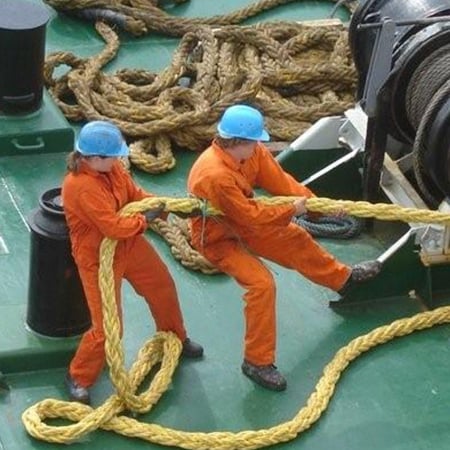

Sleep debt: why fatigue is fatal in the maritime industry
In the maritime industry, fatigue is fatal. Everyone gets tired. Some people feel like they can push through it on their own. Many people like a cup of coffee or an energy drink to help them get past it. Others will use medication, caffeine pills, or b12 supplements to keep them awake. However, no one can function at their highest and safest levels without proper sleep. They’re too tired to be safe.
Everyone knows that guy who seems to function normally even though he says he only needs four or five hours of sleep. The reality is that he’s not functioning like a normal person. Sleep loss and fatigue affect our job performance, our ability to drive cars and operate vehicles, and more. In the end, sleep loss and fatigue cause us to underperform and risk hurting ourselves as well as the people around us.
How do square shifts and rectangle shifts cause maritime workers to lose sleep?
One of the major reasons people lose sleep is because of their job. In the maritime industry there are frequently people working on shifts. Two of these work schedules cause sleep loss and can potentially cause injuries:
- The square shift requires people to work six hours on, six hours off, six hours on, and six hours off within any 24 hour period.
- The rectangle shift requires people to work eight hours on, eight hours off, four hours on, four hours off.
These schedules prevent people from getting enough sleep because people need to do things besides sleep and work.
For example, working from 12:00PM – 6:00 PM and then 12:00AM – 6:00 AM on a square shift only allows for 12 hours off. So people on a square shift have to cram everything they need to do in a short amount of time. If they are trying to get the recommended eight hours of sleep, they only have four hours to get everything else in life done.
But they don’t have four hours when you factor in food, showering, and more. Many sleep study reports suggest waking up an hour before a shift starts because it takes time to wake up. That would mean square shift workers only have three hours to eat meals, shower, relax, and take care of anything else.
To make matters even worse, that particular schedule requires people to sleep in the time period known as the “forbidden zone.” This time period is in between 8 PM and 10 PM. The normal circadian clock has a little “after dinner” energy bump, which makes it particularly hard for people to sleep during this forbidden zone. Further, even if people are able to fall asleep, the quality of sleep that they get may not be as good as it would be during more “normal” sleep hours.
How sleep debt impacts maritime workers
Studies have shown that “[e]ven a small reduction in sleep time, for example, from 8 hours to 6 hours, can impair performance” and that “alertness levels gradually decrease day after day if individuals repeatedly do not obtain sufficient sleep.” In fact, one study found that getting between four and six hours of sleep for seven days created the same amount of sleep loss as not sleeping at all for 24-48 hours.
In the maritime industry people are often on the ship for 14-28 days at a time, which means the cumulative sleep loss (known as sleep debt) for a crew member could cause serious safety risks for everyone on board. Sleep debt impairs every action fatigued workers take, since sleep loss directly impacts the cognitive functions of the brain. Every risk is a big risk in the maritime industry.
Fatigued maritime workers dealing with sleep debt and square shifts can take action
Sleep debt symptoms can be hard to pin down. Which means that maritime workers should rely on their schedules to decide if they are getting enough sleep. Fatigued maritime workers on square shifts or rectangle shifts may assume they’re dealing with sleep debt. Getting the company to change their work schedules isn’t always simple. Maritime employers who don’t provide workers with enough time to get good sleep can be held accountable. As can maritime employers who don’t provide workers with the proper facilities to get good, restful sleep. Fatigued crews are a ticking time bomb when it comes to injuries and even deaths.
To get started today, call us at 877-724-7800. Our Board Certified attorneys will go through your case with you. They will explain your legal rights and help you make an informed decision about your best options.

-2.png)